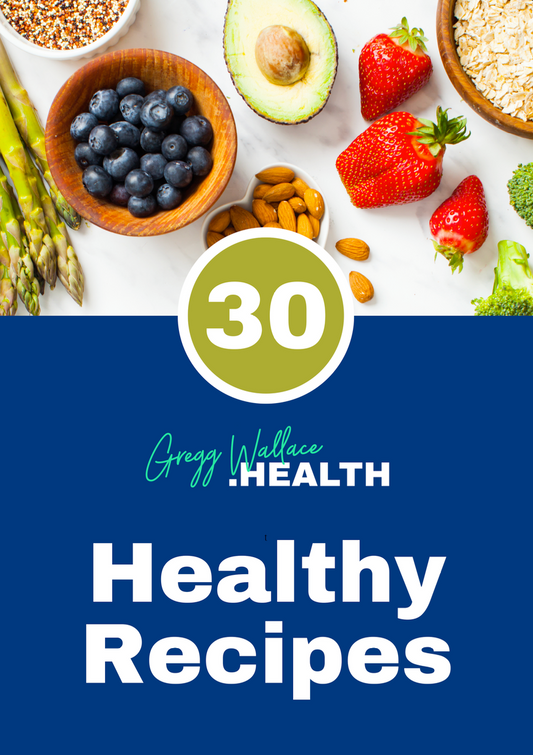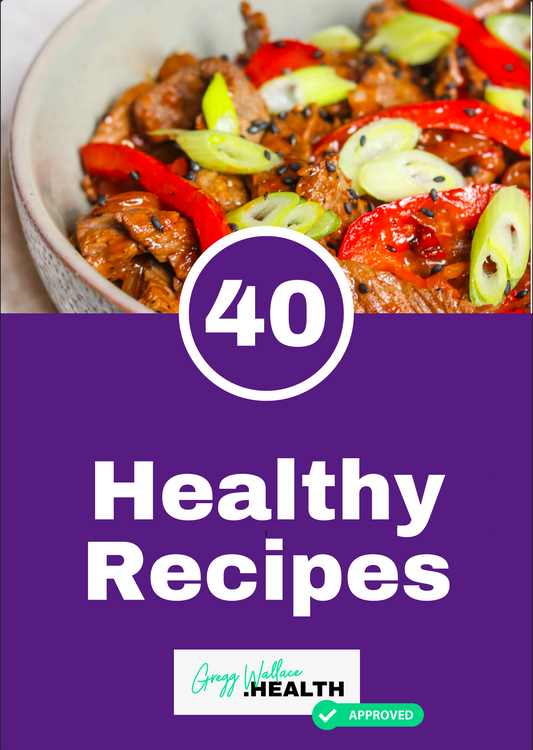Inside your digestive system lives a bustling metropolis of microscopic life, known as your gut microbiome. These little guys — mostly bacteria, along with some fungi and other microbes — may be tiny, but they punch well above their weight when it comes to keeping you healthy.
Think of your gut microbiome as a team of helpful housemates. They don’t pay rent, but they do a lot of work around the place. They help digest food, produce essential nutrients like vitamin K and certain B vitamins, train your immune system, and even send messages to your brain (yes, really — scientists call this the gut-brain axis). In short, they’re not just passengers — they’re active collaborators in your overall health.
What Do They Eat?
Like any good tenants, your gut microbes need feeding. But not just any old thing. Their favourite foods are called prebiotics — types of fibre found in plant-based foods like onions, garlic, leeks, bananas, oats, legumes, and leafy greens. These fibres aren’t digested by you — they make it all the way to your colon, where your microbes throw a little fermentation party and munch away.
When they ferment these fibres, your gut microbes produce short-chain fatty acids (SCFAs), which help reduce inflammation, strengthen your gut lining, and may even lower your risk of diseases like bowel cancer, obesity, and type 2 diabetes. So, feeding your gut the right stuff is like giving them high-quality building materials to keep your whole system running smoothly.
The Trouble with Ultra-Processed Foods
Now, enter stage left: ultra-processed foods. These are the ready-meals, fizzy drinks, sugary cereals, and colourful snack foods that fill many supermarket shelves. Convenient? Yes. Delicious? Often. But good for your gut microbiome? Not so much.
Ultra-processed foods tend to be low in fibre and high in additives like emulsifiers, artificial sweeteners, colourings, and preservatives. This spells bad news for your gut bacteria. Without enough fibre, your good microbes start to starve. And when they don’t get their favourite foods, they either die off or start feeding on the lining of your gut itself. (Yes, that’s as bad as it sounds.)
Some food additives may also directly harm your microbiome. For example, emulsifiers — added to make foods smooth and shelf-stable — have been shown in animal studies to disrupt the gut lining and promote inflammation by upsetting the microbial balance. Artificial sweeteners like saccharin and sucralose may also negatively affect blood sugar control by interfering with gut bacteria. In short, a steady diet of ultra-processed foods can turn your friendly microbial town into something closer to a post-apocalyptic wasteland.
A Case of Premature Approval
Here’s where things get interesting (and a bit concerning). Many of the additives found in ultra-processed foods were approved long before we had any real idea about the importance of the gut microbiome. Back then, the gut was just considered a digestive pipe — in goes food, out comes waste. No one was thinking about tiny bacteria colonies and how they might react to chemicals.
So, colourings, preservatives, emulsifiers, and sweeteners were all assessed mainly for their toxicity and immediate effects. If they didn’t cause cancer or organ damage in high doses, they were given the green light. But no one asked, “What happens to the friendly bugs in our gut when they eat this every day for years?”
Now that we know more, some researchers are raising red flags. It’s not that every food additive is inherently evil, but we’re discovering that some of them may have unintended consequences on our microbial health. And since these microbes are tied to everything from mood to metabolism, it might be time to revisit some of those old safety stamps with fresh eyes.
The Bottom Line (Pun Intended)
Your gut microbiome is a fascinating, complex ecosystem — like a rainforest, but squishier. It thrives on a varied, plant-rich diet and starts to struggle when fed a steady stream of ultra-processed food. While convenience food isn’t going anywhere, the good news is that you don’t need to live like a monk to support your gut health. Just adding more whole foods, fibre, and fermented goodies (like yoghurt, kefir, and sauerkraut) into your diet can make a big difference.
So next time you’re about to grab a snack, think of your gut microbes. They’re not just along for the ride — they’re driving the bus, maintaining the engine, and sending out weather reports to your brain. Treat them well, and they’ll return the favour. After all, a happy gut makes for a happier, healthier you.





